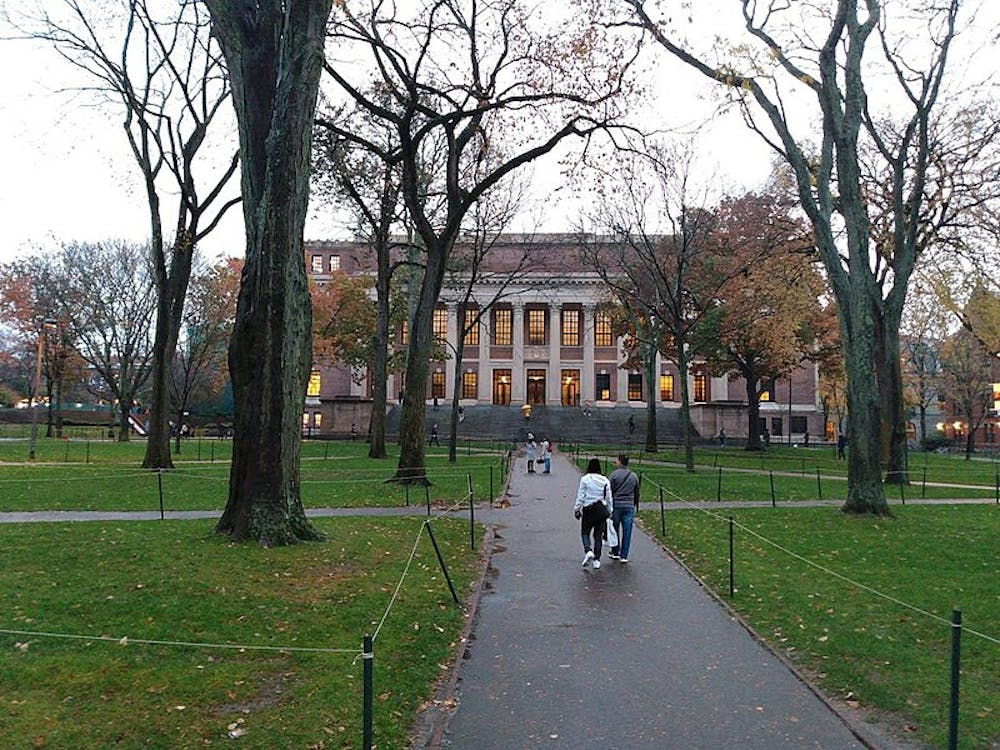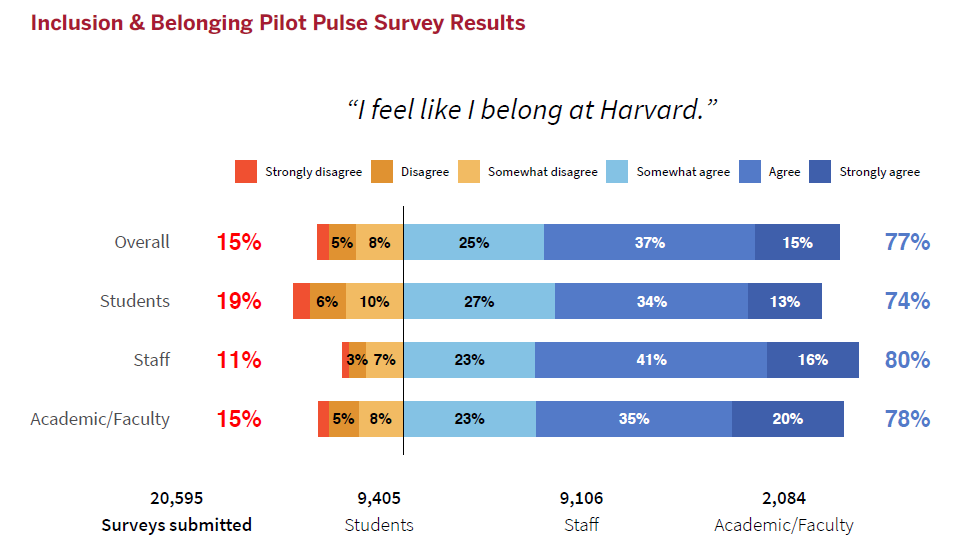The Promise of American Higher Education is a crucial topic that underscores the evolving landscape of college and university institutions in today’s society. This promise not only signifies the commitment to academic excellence but also highlights the challenges posed by the Trump administration’s demands which seek to redefine federal support for research. In an insightful letter, President Alan Garber addressed the Harvard community, articulating the University’s proactive response to these challenges. With the increasing scrutiny on American higher education, institutions must navigate these demands while adhering to their core mission. It is essential to understand how these dynamics shape the future of universities and affect educational equity and opportunity across the nation.
The commitment exhibited by educational institutions in the United States encapsulates what many refer to as the assurance of academic opportunity and excellence. This assurance has faced unprecedented scrutiny, especially in light of governmental pressures and evolving administrative directives. As President Garber articulated in his message to the Harvard community, addressing the recent challenges necessitates a coherent response from universities to their constituents and stakeholders. Such dialogue is vital to securing essential funding and maintaining a robust environment for research and innovation. With the stakes higher than ever, the discourse surrounding education, governmental expectations, and institutional integrity is more relevant, marking a significant juncture for universities across the country.
Understanding the Promise of American Higher Education
The Promise of American Higher Education symbolizes a commitment to enlightenment and advancement through scholarly pursuits. At its core, this promise encompasses not only academic rigor but also the value of research as a cornerstone of innovation. As recent developments have shown, the landscape of American higher education is constantly evolving, bringing challenges and opportunities alike. The responses from universities reflect a dedication to uphold these guiding principles even amidst external pressures.
In his communication, President Alan Garber articulated the pivotal role Harvard plays in the broader context of American higher education. The letter emphasizes how institutions must navigate the complexities of federal policies while remaining steadfast in their commitment to academic integrity and research. This ongoing dialogue between universities and governmental demands illustrates the resilience and adaptability of educational institutions that prioritize their mission to foster learning and discovery.
Navigating the Trump Administration’s Demands: A Harvard Perspective
The Trump administration’s demands have presented significant challenges for universities across the nation, prompting a thoughtful response from the Harvard community. These external expectations come at a crucial time when federal support for research is paramount to sustaining academic growth and innovation. Harvard’s administration has actively engaged in debates over these demands, ensuring that the University’s mission is upheld while addressing the governmental requests.
Harvard’s response is indicative of a larger trend within higher education, where institutions are advocating for the importance of research funding and autonomy. The nuances of these exchanges reflect a commitment to maintaining academic freedom, even as external pressures mount. This balanced approach not only secures necessary funding but also reinforces Harvard’s position as a leader in the conversation surrounding the future of higher education in America.
The Role of Federal Support in Research at Harvard
Federal support for research is crucial in facilitating cutting-edge advancements across various fields at Harvard University. Instances of funding cutbacks or alterations in policies enforced by administrations can significantly impact ongoing research projects and academic programs. President Garber’s message underscores the importance of these funds in enabling scholars to pursue groundbreaking work that contributes to societal growth and understanding through scientific inquiry.
Moreover, the continued dialogue about research funding and support is vital for fostering an environment where innovation can thrive. Universities like Harvard rely heavily on consistent and robust federal backing to ensure that their research capabilities remain at the forefront. This adherence to securing necessary resources allows Harvard to not only uphold its educational promise but also to contribute meaningfully to national and global advancements in knowledge.
University Response to Shifts in Higher Education Policy
As universities respond to shifts in higher education policy, proactive communication with the community is essential. Harvard’s leadership, exemplified by President Garber’s recent letter, demonstrates a commitment to transparency regarding institutional strategies in light of external demands. The updates provided illustrate how the Harvard community is unified in addressing challenges while striving to fulfill its educational mission.
This response is not merely reactive; it is a proactive stance that aims to foster discussion among faculty, students, and stakeholders. By keeping the community informed, Harvard can ensure that its members are engaged in the conversation about the evolving dynamics of higher education, as well as in advocacy efforts for policies that support a sustainable research environment and academic freedom.
Impact of Policy Changes on Academic Communities
Changes in educational policies significantly impact academic communities, particularly in research-driven institutions like Harvard. These shifts often prompt reassessments of funding allocations, priorities, and overall institutional strategies. President Garber’s message highlights how policy changes initiated by the Trump administration can ripple through the community, influencing research initiatives and student experiences alike.
Furthermore, engagement with these policy changes fosters a culture of resilience and adaptability within the academic sphere. Harvard’s approach to these challenges not only showcases its institutional strength but also serves as a model for other universities navigating similar situations. By remaining interconnected and responsive, the Harvard community can better advocate for the importance of education and research amidst an ever-changing political landscape.
The Importance of Open Dialogue in Higher Education
Open dialogue within academic institutions is crucial in navigating the complexities of modern education policy and research support. As highlighted in President Garber’s communication, fostering an environment where ideas can be shared freely, and concerns can be addressed, is essential for maintaining the integrity of academic institutions. This openness encourages collaboration among students, faculty, and administration, ensuring that diverse perspectives are considered in decision-making processes.
Moreover, maintaining an open line of communication during times of uncertainty helps build trust within the community. The Harvard community benefits from this approach, as it allows for greater participation in discussions that shape the institution’s future. When members feel heard and valued, they are more likely to contribute actively to advocacy efforts that safeguard the promise of American higher education.
Research Funding and its Significance to Harvard’s Mission
The significance of research funding to Harvard’s overarching mission cannot be overstated. These funds enable the University to pursue high-impact research that addresses critical societal issues and fosters innovation. Without adequate federal support, the breadth and depth of research initiatives could be significantly hindered, limiting the University’s ability to contribute valuable discoveries and advancements to the world.
In response to potential funding challenges, the Harvard community remains vigilant and proactive in demonstrating the value of their research endeavors. By highlighting successful projects and their societal benefits, Harvard bolsters its case for sustained financial support. This strategy not only reinforces the importance of research funding to Harvard’s mission but also reflects a commitment to delivering on the promise of American higher education.
Engagement with the Harvard Community on Policy Issues
Engagement with the Harvard community regarding policy issues is integral to fostering a collaborative atmosphere that benefits everyone involved. President Garber’s letter serves as a touchpoint for feedback and discussion, inviting community members to engage with the complexities of current policy challenges and advocate for necessary changes. By opening up this dialogue, Harvard strengthens its ties with students, faculty, and alumni who are passionate about the future of American education.
This consistent engagement allows Harvard to stay attuned to the concerns and aspirations of its community. As the landscape of higher education shifts, having an informed and vocal constituency becomes essential in influencing policy discussions at all levels. This collective effort not only reaffirms Harvard’s role as a forerunner in the educational realm but also exemplifies the synergy between higher education institutions and the communities they serve.
Future Opportunities for Harvard in American Higher Education
Looking ahead, Harvard has the opportunity to shape the future of American higher education through innovation and research excellence. The changing policies under the Trump administration present both challenges and avenues for growth, allowing the University to redefine its approach to federal support for research. By embracing emerging trends and technologies, Harvard can position itself as a leader in educational reform and scholarly advancement.
Additionally, fostering collaborations with other institutions and sectors can enhance the impact of Harvard’s initiatives. As the educational landscape evolves, engaging diverse stakeholders will be vital in addressing the pressing issues faced by higher education today. Through strategic partnerships and a commitment to its foundational promise, Harvard can continue to uphold the principles of discovery and education that are integral to American higher education.
Frequently Asked Questions
What is the ‘Promise of American Higher Education’ according to Harvard’s President Alan Garber?
The ‘Promise of American Higher Education’ refers to the commitment of universities like Harvard to uphold academic excellence, accessibility, and research innovation. President Alan Garber emphasized this promise in a letter to the Harvard community, highlighting the significance of maintaining federal support for research amid the Trump administration’s recent demands.
How does the Trump administration’s demands affect American higher education?
The Trump administration’s demands pose challenges for American higher education by potentially impacting federal support for research initiatives. Universities must navigate these demands while striving to fulfill their educational promises, which include fostering a robust research environment and enhancing academic freedom.
What was included in President Garber’s letter to the Harvard community regarding the ‘Promise of American Higher Education’?
In his letter titled ‘The Promise of American Higher Education,’ President Garber outlined Harvard’s response to the Trump administration’s demands. He reinforced the institution’s dedication to its educational mission and the importance of federal funding for research, asserting the need for universities to advocate for their academic values.
Why is federal support for research critical to the Promise of American Higher Education?
Federal support for research is vital to the Promise of American Higher Education because it enables universities to conduct groundbreaking research, attract talented faculty and students, and maintain competitive academic programs. This funding helps institutions uphold their commitment to innovation and excellence in education.
What updates did President Garber provide in the context of the Trump administration’s impact on Harvard?
President Garber provided updates on how Harvard is responding to the Trump administration’s requests, emphasizing the university’s commitment to safeguarding its research integrity and the need to ensure that the promise of American higher education is upheld amidst political pressures.
| Key Points |
|---|
| President Alan Garber’s communication to the Harvard community about the recent demands from the Trump administration, reflecting the challenges faced by higher education institutions. |
| The letter emphasizes the necessity of maintaining federal support for research and the implications of potential policy changes. |
| The message highlights Harvard’s commitment to uphold its values and mission in the face of external pressures. |
Summary
The Promise of American Higher Education serves as a pivotal reminder of the ongoing commitment made by institutions such as Harvard to uphold academic integrity and maintain their mission amidst external challenges. President Alan Garber’s recent communication demonstrates the proactive approach taken by the University in addressing federal demands concerning research funding. This assurance not only reflects resilience but also illustrates a broader commitment to preserving the core values of American higher education for future generations.




